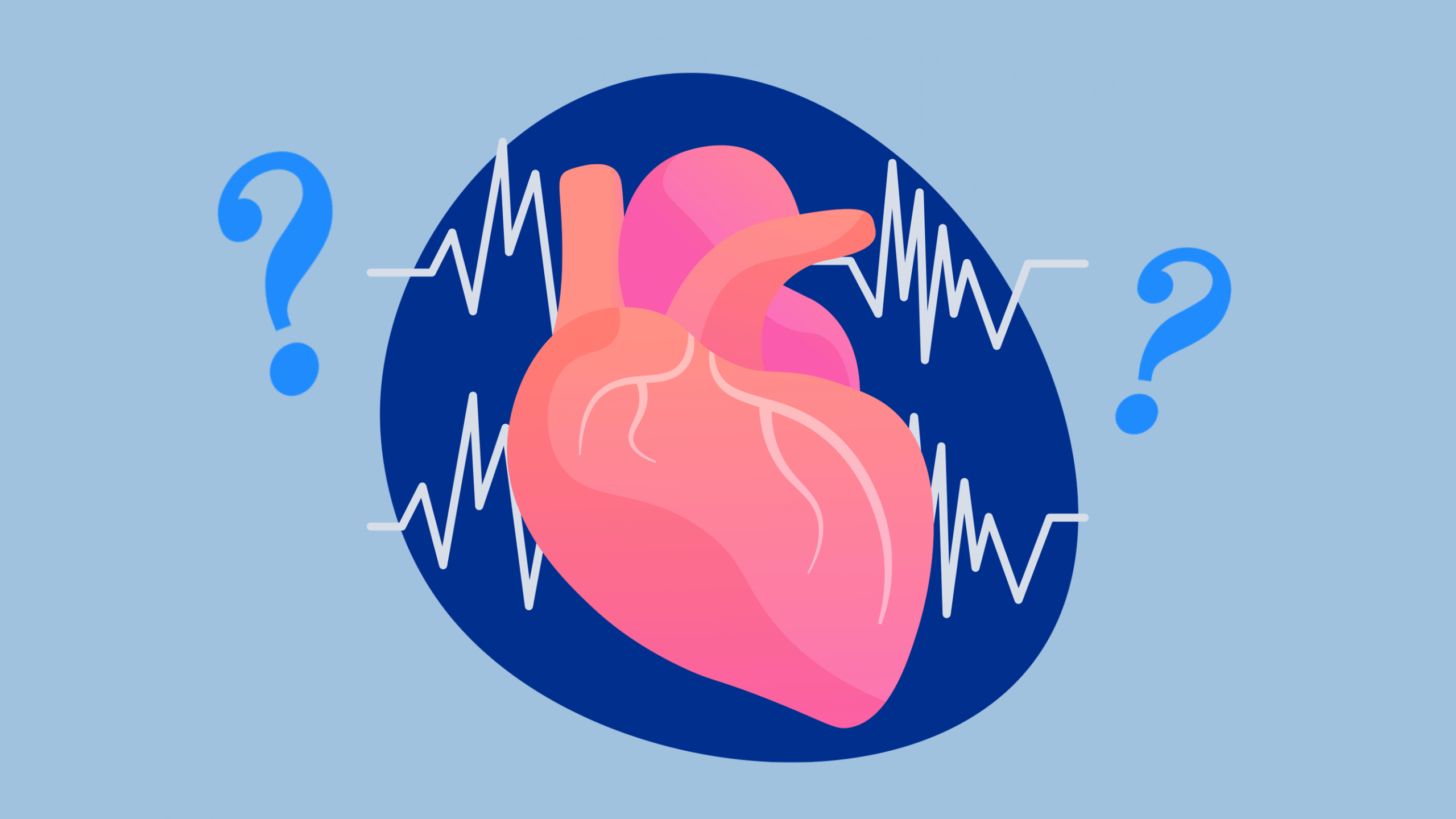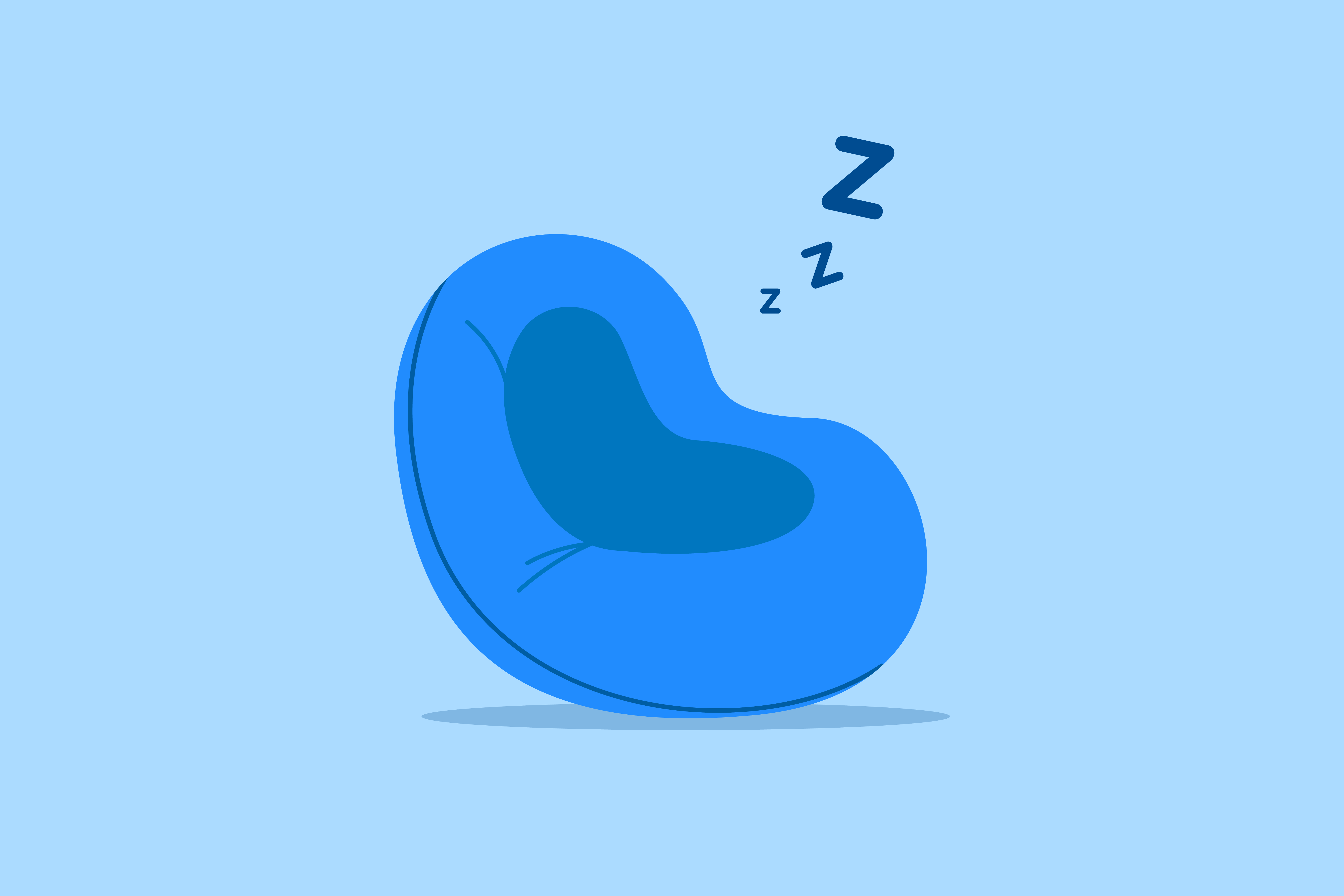Key Takeaways
- What Should My Heart Rate Be: The official resting heart rate for a healthy adult typically falls between 60 to 100 beats per minute (bpm), but variations can occur based on factors like age, fitness level, and sex. During sleep, a normal sleeping heart rate is usually 10-20% lower than the resting heart rate during the day. For most healthy adults, this translates to a sleeping heart rate between 50-70 bpm.
- What Affects Heart Rate: Regular exercise, stress management, a healthy diet, and consistent sleep patterns are essential for maintaining a healthy heart rate. Sleep especially plays a crucial role in heart health, with deep sleep allowing the heart to rest and recover. Sleep disorders like sleep apnea can disrupt this process and lead to increased heart rate and blood pressure.
- When Is Heart Rate a Concern: Monitoring your heart rate and seeking medical attention if you notice irregularities is important for maintaining heart health. Consult a healthcare professional if you have concerns about your heart rate, experience heart palpitations, or have symptoms like dizziness, shortness of breath, or chest pain.
The heart is a vital organ and is responsible for pumping blood throughout our body. It has rhythms and rates that vary based on various factors — active status and state.
Your heart rate can be a reference to assess your overall health, fitness levels, and any potential underlying medical conditions. However, a normal sleeping heart rate is often between 40 to 50 beats per minute (bpm).
Let’s take a deeper look at what is the normal heart rate during different states.
Average Heart Rate
The average heart rate Verified Source American Heart Association (AHA) Funds cardiovascular medical research and promotes awareness about heart health. View source of a normal healthy adult is between 60 to 100 beats per minute (bpm).
However, people with active lifestyles, such as trained athletes and those with higher fitness levels, have a resting heart rate as low as 40 bmp.
These are the normal ranges (not optimal) and your heart rate Verified Source Harvard Health Blog run by Harvard Medical School offering in-depth guides to better health and articles on medical breakthroughs. View source can differ depending on various factors. However, adult males tend to have lower heart rates than adult females, largely due Verified Source National Library of Medicine (NIH) World’s largest medical library, making biomedical data and information more accessible. View source to the size difference of hearts between sexes.
In certain conditions, a heart rate outside of the normal range is also considered healthy. You need to consult with your medical healthcare professional to know the healthy heart rate for you.
Studies have found Verified Source National Library of Medicine (NIH) World’s largest medical library, making biomedical data and information more accessible. View source that an increase in heart rate by 10 beats per minute is associated with an increased risk of cardiac death by at least 20%.At Rest
Resting heart rate is typically measured when the person is calm, seated, and has not performed any strenuous activities recently.
Resting heart rate provides Verified Source Harvard Health Blog run by Harvard Medical School offering in-depth guides to better health and articles on medical breakthroughs. View source a baseline metric for insights into one’s cardiovascular fitness and potential health risks. A low heart rate in a resting state indicates better heart health.
Here are some reference ranges of average resting heart rate for different age groups.
- Newborns (0-1 month): 70-190 bpm
- Infants (1-11 months): 80-160 bpm
- Children (1-2 years): 80-130 bpm
- Children (3-4 years): 80-120 bpm
- Children (5-6 years): 75-115 bpm
- Children (7-9 years): 70-110 bpm
- Children over 10 years & Adults (including seniors): 60-100 bpm
- Well-trained athletes: 40-60 bpm
While Exercising
During exercise, our heart works more to supply oxygen-rich blood to our body. The range of normal heart during exercise depends on different factors. However, it is supposed to be higher with regard to the intensity of the activity.
For moderate-intensity workouts or physical activity, your target heart rate should be Verified Source American Heart Association (AHA) Funds cardiovascular medical research and promotes awareness about heart health. View source between 64% to 76% of your maximum heart rate.
A common method Verified Source Centers for Disease Control and Prevention (CDC) The United States’ health protection agency that defends against dangers to health and safety. View source to determine your maximum age-related heart rate is by subtracting your age from 220. For instance, for a 30-year-old, the estimated maximum heart rate would be 190 bpm (220-30). The 64% and 76% levels would be:
- 64% level: 190 x 0.64 = 121.6 bpm, and
- 76% level: 190 x 0.76 = 144.4 bpm
While Sleeping
Your body undergoes a restorative process when you are asleep. Among various physiological changes that take place while you are sleeping, your body temperature drops, and your heart rate decreases.
A normal sleeping heart rate is typically 10-20% lower than the resting heart rate during the day.
For a normal healthy adult, the average sleeping heart rate should ideally be between 50-70 bpm, which can be lower for athletes or physically active individuals.
However, factors like sleep stages — REM, non-REM — age, and overall health can influence how the heart rate gradually slows during sleep.
Sleep and Heart Rate
There are multiple stages to a night of good sleep, and in each sleep stage, the heart rate fluctuates.
- Non-REM Sleep: In the deep sleep stage, the blood pressure and heart rate take a dip to their lowest levels. It gives the heart a much-needed break and allows it to recover and repair.
- Rapid Eye Movement Sleep or REM Sleep: During REM or light sleep, where the person sees dreams, heart rate is the most variable. Depending on brain activity, the heart rate can increase or become irregular.
Sleep has a significant effect on heart rate. Verified Source National Library of Medicine (NIH) World’s largest medical library, making biomedical data and information more accessible. View source Quality sleep is associated with a decrease in heart rate, blood pressure, and sympathetic activity.
According to sleep expert Dr. Zhang, the transition from light sleep to deep sleep is associated with decreased heart rate and blood pressure, and this significant drop in blood pressure during non-REM sleep compared to wake is beneficial for cardiovascular health. Therefore, sleep has been considered as a “cardiovascular holiday.”
This is why sleeping disorders can become a root cause of various heart health-related concerns. Such as sleep apnea, a condition where breathing stops temporarily during sleep. It can lead to sudden drops in blood oxygen levels.
If you have sleep apnea, it forces the heart to work harder, leading to an increased heart rate and high blood pressure.
Regular sleep patterns can lead to optimal heart rates. Sleep disruption or deprivation can cause elevated heart rates and an increased risk of cardiovascular diseases.
Factors Affecting Sleeping Heart Rate
The heart rate during sleep can be influenced by various physiological and external factors. Though the heart rate takes a dip while sleeping, but it can vary widely among individuals.
The following factors play a huge role in influencing heart rate.
Age
Your average heart rate is greatly dependent on your age. Young children and infants tend to have a high heart rate during sleep. The heart rate gradually decreases as the body grows.
In adults, the heart rate stabilizes but can vary depending on several factors, like lifestyle, stress levels, and fitness.
In old age, the efficiency of the heart declines to a great extent which leads to multiple variations in the sleeping heart rate.
Fitness Level
Cardiovascular exercises strengthen your heart muscle, making it more efficient. Athletes are known to have a lower resting and sleeping heart rate compared to their less active counterparts.
People with sedentary lifestyles are known to have a higher sleeping and resting heart rate, and their heart works harder to pump blood throughout the body.
Studies have shown Verified Source National Library of Medicine (NIH) World’s largest medical library, making biomedical data and information more accessible. View source that exercises, especially endurance training, decrease heart rate. This reduction may contribute to a reduction in all-cause mortality due to regular exercise or sports.Regularly exercising can also help improve your heart rate variability while you sleep and when you’re awake. Heart rate variability (HRV) is a measure of the variation in time between successive heartbeats. It reflects the ability of the heart to adapt and respond to different situations.
While maintaining an active lifestyle is beneficial to your heart health and sleep, try to avoid intense workouts right before bed. Dr. Zhang suggests that strenuous exercise close to bedtime can raise your heart rate and make it difficult to relax and fall asleep.
Health Conditions
A spectrum of diseases can contribute to a disturbance in your heart rate. Health conditions like hypertension, arrhythmia Verified Source National Library of Medicine (NIH) World’s largest medical library, making biomedical data and information more accessible. View source and other heart diseases are often associated with irregular sleeping heart rates.
Other conditions like thyroid disorder, anemia, and certain medications can also influence heart rate.
Lifestyle Factors
Chronic stress or anxiety can elevate levels of stress hormone cortisol. Stress hormones have a negative impact Verified Source National Library of Medicine (NIH) World’s largest medical library, making biomedical data and information more accessible. View source on your heart rate. In multiple studies, people in high-stress environments are reported to have an increased heart rate even during sleep.
Aside from stress’s impact on sleep, other lifestyle choices like heavy meals and caffeine intake before bedtime can elevate the sleeping heart rate.
Tips for Managing Heart Rate
It is crucial to maintain a healthy heart rate for overall well-being and cardiovascular health. Irregular or consistently high heart rate can be an indicative factor of any underlying health conditions.
Here are some tips to help you manage your heart rate.
- Stay Active: You should engage in activities — walking, jogging, cycling, or swimming — that help strengthen your heart muscles, along with the benefits of regular exercise for sleep and overall health. You can also incorporate strength training in your routine to improve overall fitness.
- Effective Stress Management: Add relaxing activities like warm baths, journaling, and deep breathing exercises to your daily routine. These activities help you declutter your mind and relax when you need it.
- Healthy Diet: A nutrient-rich wholesome diet is important for overall health. Add whole grains, lean proteins, fruits, and vegetables to your diet. Plus, stay hydrated for good sleep by drinking plenty of water.
- Limit Stimulants: Stimulants like caffeine can elevate your heart rate. Also, stay mindful of the over-the-counter medications that contain stimulants.
- Get Adequate Sleep: For overall health, you should aim for 7-9 hours of sleep per night. Maintain a consistent sleep schedule even on the weekends and follow a relaxing bedtime routine to improve your sleep quality.
When to Consult a Healthcare Professional
Your normal sleeping heart rate can be anywhere near the lower or higher side. It varies from person to person. However, you have to be attentive to any irregularities or concerns that require medical attention.
Here are some alarming states that signal when you should seek medical attention.
- For a normal healthy adult, if your average heart rate is consistently above 100 bpm, we recommend speaking with a doctor.
- If you frequently feel heart palpitations accompanied by dizziness, shortness of breath, or chest pain.
- If you have a normal lifestyle but still your heart rate is below 60 bpm, which is not related to physical fitness.
- If you have recently started taking medications and noticing a change in your normal resting heart rate, consult with your doctor.
- If you are feeling chest pain, shortness of breath, fainting, or severe fatigue, you should seek prompt medical attention.
Your doctor can diagnose your condition and figure out any underlying condition that is contributing to your heart rate.
Based on the diagnosis, your doctor will provide guidelines on lifestyle changes, suggest treatment options, and changes to medications to stabilize your heart rate.
If you are feeling any other symptoms, communicate with your doctor.
FAQs
What is an unsafe heart rate when sleeping?
What is an unsafe heart rate during sleep varies from person to person and largely depends on individual health factors. However, a resting heart rate significantly above or below your typical range during sleep could be cause for concern. According to Dr. Zhang, the telltale signs of unsafe sleeping heart rate including chest pain, shortness of breath, or palpitations.
For most adults, a normal resting heart rate is between 60 and 100 heart beats per minute. If your heart rate consistently exceeds this range while you’re asleep, it might indicate an underlying issue, such as sleep apnea, arrhythmia, or another sleep-related disorder. Consult a healthcare professional if you suspect your heart rate during sleep is unsafe.
How should I sleep for a healthy heart?
Sleeping positions can influence heart health. The best position for most people is on their sides or back, as both can promote spine health, and side sleeping reduces the risk of developing sleep-related problems like acid reflux or sleep apnea.
However, individual preferences vary. You should choose a position that ensures comfort and quality sleep for you. Along with good sleep posture, it’s important to maintain a consistent sleep schedule, aiming for 7-9 hours of sleep per night. Also, create a comfortable sleep environment that helps you fall asleep fast.
How does sleep affect your heart?
Quality sleep is crucial for heart health. During deep sleep, the body repairs and regenerates tissues, including the heart. Poor sleep quality or sleep deprivation affects the heart and can lead to various cardiovascular issues, such as high blood pressure, irregular heart rhythms, and a higher risk of heart disease.
In short, adequate sleep is essential for maintaining healthy blood pressure, heart rate, and overall cardiovascular function.
What is the best bedtime for your heart?
While there’s no one-size-fits-all answer to the ideal bedtime for heart health, consistency is key. Going to bed and waking up at the same time each day helps regulate your body’s internal clock, promoting better sleep quality and overall heart health.
The right bedtime may vary depending on your individual schedule and lifestyle, but everyone should prioritize getting enough sleep regularly to support their heart’s well-being. As an adult, you should strive to get 7 to 9 hours of sleep a night. Consult our bedtime calculator to help you determine what sleep schedule works best for you.
How can sleep disorders affect heart health?
Sleeping disorders can significantly impact heart health and increase the risk of cardiovascular disease if left untreated. Conditions like sleep apnea, where breathing repeatedly stops and starts during sleep, can lead to reduced oxygen intake and increased blood pressure, putting added stress on the heart. Conditions like insomnia or restless leg syndrome can also contribute to chronic sleep deprivation, leading to cardiovascular issues over time.
Managing and treating sleep disorders is crucial for maintaining a healthy heart. If you suspect you have a sleep disorder, consult a healthcare professional for diagnosis and treatment options.
Conclusion
Understanding your heart rate during different states, especially while sleeping, is essential for assessing your overall health and well-being. A normal sleeping heart rate typically falls between 50-70 beats per minute for healthy adults, although variations can occur due to factors such as sleep stages, age, and fitness levels. Maintaining a healthy heart rate is crucial, as irregularities can signal underlying health conditions.
Quality sleep plays a pivotal role in heart health. During deep sleep, the heart gets a chance to rest and recover, contributing to overall cardiovascular well-being. However, sleep disorders like sleep apnea can disrupt this process, leading to increased heart rate and blood pressure, potentially increasing the risk of heart-related problems.
Various factors, including age, fitness level, and lifestyle choices, influence heart rate, both during sleep and throughout the day. Regular exercise, stress management, a healthy diet, and adequate sleep are essential components of maintaining a healthy heart rate and optimizing your cardiovascular health as a whole.
Monitoring your heart rate and recognizing irregularities is crucial. A healthcare professional can diagnose and address any underlying conditions affecting your heart rate, providing guidance on lifestyle changes, treatment options, and medication adjustments as needed.
About the author
Mitchell Tollsen is a graduate student and a freelance writer who’s contributed to the Early Bird blog for three years. Mitchell’s always been fascinated by the science of sleep and the restorative processes our bodies undergo when at rest. The self-titled “Sleep Expert” is always looking for ways to improve his shut-eye, and throughout the years has implemented numerous lifestyle changes and tried dozens of sleep-promoting gadgets to determine the best ways to truly get better rest.
View all posts





